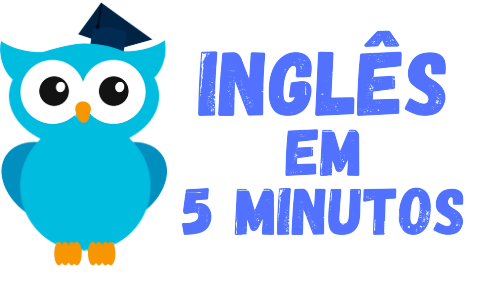"It is easy
to understand why many teachers revert to textbooks or worksheets when things
around them are in constant, challenging motion, but they must learn to be in
motion, too. The students are being loud; they are having a hard time paying
attention to each other; they are having a hard time paying attention to the
teacher. We all know that telling students to turn to page 37 and answer the
questions can relieve chaos and make the room quieter for a time. I've recently
heard of a new trend of teachers using wireless microphones in an effort to
keep students' attention and be heard above the other noise in the classroom.
Education is not about who can speak the loudest. It's about the students and teacher
wanting to listen to each other. A truly personalized, small school allows that
to happen. Another reason I look to my friend Tom Peters for ideas on how to
deal with the tough moments is because he entitled one of his books
"Thriving on Chaos". Tom told me it took him a long time to land on
that word "thriving". But he was looking for a way of saying you must
be ready for and enjoy the process of change. Our schools must be thriving
environments, thriving on the chaos and on the beauty. We all need to
re-examine our situations from time to time and make sure we are not sticking
to old patterns in new situations." --Dennis Littky I like the phrase
"Thriving on Chaos". As we all know, the world is constantly changing
and its changing quickly. Science, education, travel, technology, and human
relationships are evolving rapidly. Sometimes it can feel overwhelming. In
fact, many people do become overwhelmed by the pace of change. They may become
depressed. They may dig in and become very conservative in an effort to
stop.... or at least slow the change. Some people even become quite bitter
about it. Others try to keep up, but can't. Without a doubt, human societies
have changed. Its no longer possible to thrive by doing things the way they
have always been done. "We've always done it that way" is no longer a
reasonable explanation. In fact, it's an excuse that is a recipe for failure.
So how can we thrive on chaos? How do we not only survive these rapid changes,
but learn to enjoy them? How do we use change to enhance our lives? It may seem
antithetical, but one of the key ways to thrive on change is to have a set of
unchanging principles. A principle is not a rule. Rules are inflexible. They
are limiting. They slow us down and make it hard for us to adapt quickly when
circumstances change. Principles, on the other hand, are highly adaptable. A
principle is a general value -- a commitment to something that is deep and
meaningful. "I must always shake hands when I meet a new person" is a
rule. If you meet a Japanese person and you have this rule, you may become
confused. "I will try always be kind and respectful" is a principle.
Principles are easily adaptable to new circumstances because principles are
generally not concerned with specific actions or details. There are many ways
to show respect, for example. In the past, schools, companies, and individuals
often focused on rules. The problem is, students, employees, society, and
individuals have changed. The old rules don't work anymore. What we need to
thrive in this tumultuous age are deep principles-- and the flexibility to
change the way we follow them. Another vital skill for this age of chaos is
reflection. Reflection means thinking deeply about something-- usually
yourself, your life, and your actions. Many people have been taught to first
think, then act. But I think its better to do the opposite-- first act, then
think. If you think first, it's easy to get lost in a theoretical world of
abstract ideas. The education field is full of these kinds of people. They
think, talk, write, and debate-- but its all theory-- all in their head. These
people actually have no idea what is happening in the world and what would
happen if they tried something new. If you act first, however, you then have
something concrete to think about. Your thinking is grounded in the real world.
When you act first, its harder to become caught up in speculation. Another
tremendous advantage to acting first is that actions often have surprising
consequences. When we think, we often believe we have thought of every
possibility. But then, to our surprise, we discover that lots of unexpected
things happen when we actually try something new. These surprises are the seeds
of innovation and creativity. Unimaginative people often label the surprises as
"failures"-- simply because the results were not as expected. But in
the words of Tony Robbins, there are no failures-- there are only results. In
fact, so-called failures are often more valuable than what most consider
success. Failure gives you new ideas and new input. "Success" often
just reinforces your old ideas. And so, to truly thrive on chaos, we must act
first and then think. We must also discard labels such as "failure"
and "success" and instead think in terms of "interesting
results", "possibilities", and "opportunities". The
time for rigid, rule-centered thinking was 100 years ago. In the churning,
hyper speed digital age-- the only way to thrive is to stick to your
principles, act without fear, and embrace interesting failures. Those who thrive
on chaos are those who learn to enjoy the ride.
"É fácil entender por que muitos professores
recorrem a livros didáticos ou planilhas quando as coisas ao seu redor estão em
constante e desafiador movimento, mas eles também precisam aprender a estar em
movimento. Os alunos estão falando alto; eles estão tendo dificuldade em
prestar atenção entre si; eles estão tendo dificuldade em prestar atenção ao
professor. Todos nós sabemos que dizer aos alunos para virarem para a página 37
e responderem às perguntas pode aliviar o caos e deixar a sala mais silenciosa
por um tempo. Recentemente, ouvi falar de uma nova tendência dos professores
usarem microfones sem fio em um esforço para manter a atenção dos alunos e
serem ouvidos acima dos outros ruídos na sala de aula. Educação não é sobre
quem pode falar mais alto. É sobre os alunos e o professor que querem ouvir um
ao outro. A verdadeiramente personalizada, a pequena escola permite que isso
aconteça. Outra razão pela qual eu procuro meu amigo Tom Peters em busca de ideias
sobre como lidar com os momentos difíceis é porque ele intitulou um de seus
livros "Prosperando no Caos". Muito tempo para chegar nessa palavra
"prosperar". Mas ele estava procurando uma maneira de dizer que você
deve estar pronto e aproveitar o processo de mudança. Nossas escolas devem ser
ambientes prósperos, prosperando no caos e na beleza. Todos nós precisamos
reexaminar nossas situações de tempos em tempos e ter certeza de que não
estamos nos apegando a velhos padrões em novas situações." --Dennis Littky
Eu gosto da frase "Prosperar no Caos". Como todos sabemos, o mundo é constantemente mudando e mudando rapidamente. A ciência, a educação, as viagens, a tecnologia e os relacionamentos humanos estão evoluindo rapidamente. Às vezes pode parecer esmagador. Na verdade, muitas pessoas ficam sobrecarregadas com o ritmo da mudança. Elas podem ficar deprimidas. Elas podem cavar e se tornam muito conservadores em um esforço para parar... ou pelo menos retardar a mudança. Algumas pessoas até se tornam bastante amargas com isso. Outros tentam acompanhar, mas não conseguem. Sem dúvida, as sociedades humanas mudaram. Não é mais possível prosperar fazendo as coisas do jeito que sempre foram feitas. "Nós sempre fizemos assim" não é mais uma explicação razoável. Na verdade, é uma desculpa que é uma receita para o fracasso. Então, como prosperamos no caos? Como não apenas sobrevivemos a essas mudanças rápidas, mas aprendemos para apreciá-los? Como usamos a mudança para melhorar nossas vidas? Pode parecer antitético, mas uma das principais maneiras de prosperar na mudança é ter um conjunto de princípios imutáveis. Um princípio não é uma regra. As regras são inflexíveis. Eles são limitantes. Eles nos atrasam e dificultam a adaptação rápida quando as circunstâncias mudam. Os princípios, por outro lado, são altamente adaptáveis. Um princípio é um valor geral – um compromisso com algo que é profundo e significativo. "Devo sempre apertar as mãos quando conheço uma nova pessoa" é uma regra. Se você conhecer um japonês e seguir essa regra, poderá ficar confuso. "Vou tentar sempre ser gentil e respeitoso" é um princípio. Os princípios são facilmente adaptáveis a novas circunstâncias porque os princípios geralmente não se preocupam com ações ou detalhes específicos. Há muitas maneiras de mostrar respeito, por exemplo. No passado, escolas, empresas e indivíduos geralmente se concentravam em regras. O problema é que estudantes, funcionários, sociedade e indivíduos mudaram. As velhas regras não funcionam mais. O que precisamos para prosperar nesta época tumultuada são princípios profundos – e a flexibilidade para mudar a maneira como os seguimos. Outra habilidade vital para esta era de caos é a reflexão. Reflexão significa pensar profundamente sobre algo – geralmente você mesmo, sua vida e suas ações. Muitas pessoas foram ensinadas a primeiro pensar, depois agir. Mas acho que é melhor fazer o oposto - primeiro agir, depois pensar. Se você pensar primeiro, é fácil se perder em um mundo teórico de ideias abstratas. O campo da educação está cheio desses tipos de pessoas. Eles pensam, falam, escrevem e debatem - mas é tudo teoria - tudo na cabeça deles. Essas pessoas realmente não têm ideia do que está acontecendo no mundo e do que aconteceria se tentassem algo novo. Se você agir primeiro, no entanto, terá algo concreto em que pensar. Seu pensamento é fundamentado no mundo real. Quando você age primeiro, é mais difícil ficar preso na especulação. Outra tremenda vantagem de agir primeiro é que as ações geralmente têm consequências surpreendentes. Quando pensamos, muitas vezes acreditamos que pensamos em todas as possibilidades. Mas então, para nossa surpresa, descobrimos que muitas coisas inesperadas acontecem quando tentamos algo novo. Essas surpresas são as sementes da inovação e da criatividade. Pessoas sem imaginação costumam rotular as surpresas como "fracassos" - simplesmente porque os resultados não foram os esperados. Mas nas palavras de Tony Robbins, não há fracassos – há apenas resultados. Na verdade, os chamados fracassos costumam ser mais valiosos do que o que a maioria considera sucesso. O fracasso lhe dá novas ideias e novas contribuições. O "sucesso" muitas vezes apenas reforça suas velhas ideias. E assim, para realmente prosperar no caos, devemos agir primeiro e depois pensar. Devemos também descartar rótulos como "fracasso" e "sucesso" e, em vez disso, pensar em termos de "resultados interessantes", "possibilidades" e "oportunidades". A época do pensamento rígido e centrado em regras foi há 100 anos. Na era digital agitada e de alta velocidade - a única maneira de prosperar é manter seus princípios, agir sem medo e abraçar falhas interessantes. Aqueles que prosperam no caos são aqueles que aprendem a aproveitar o passeio.

